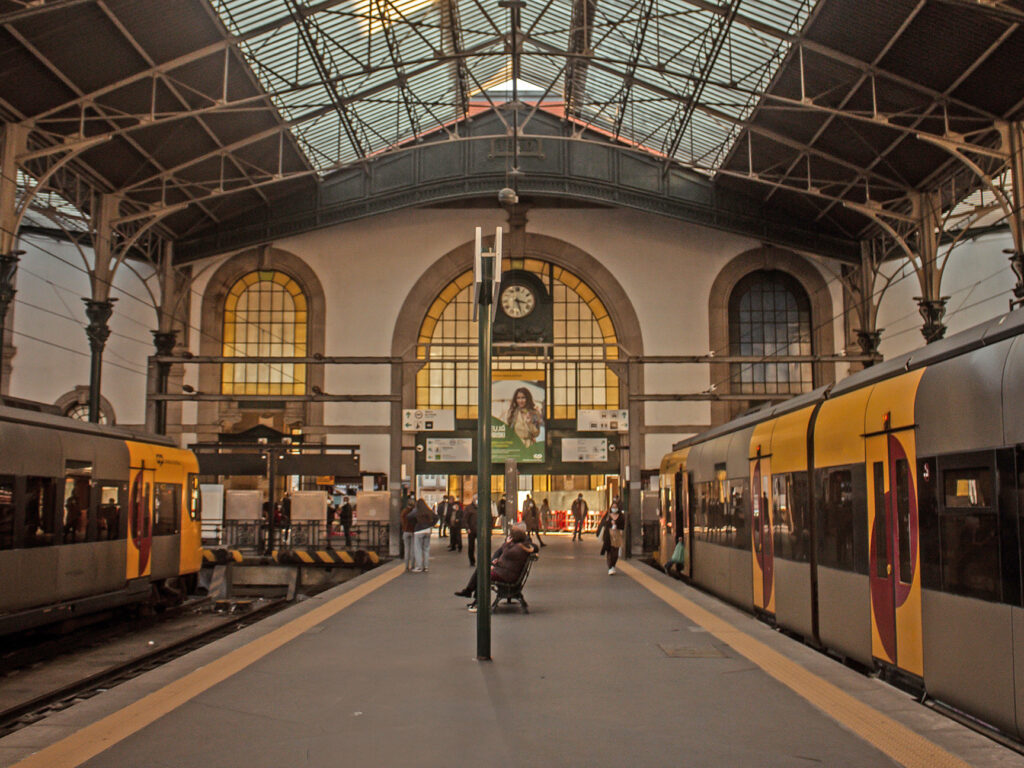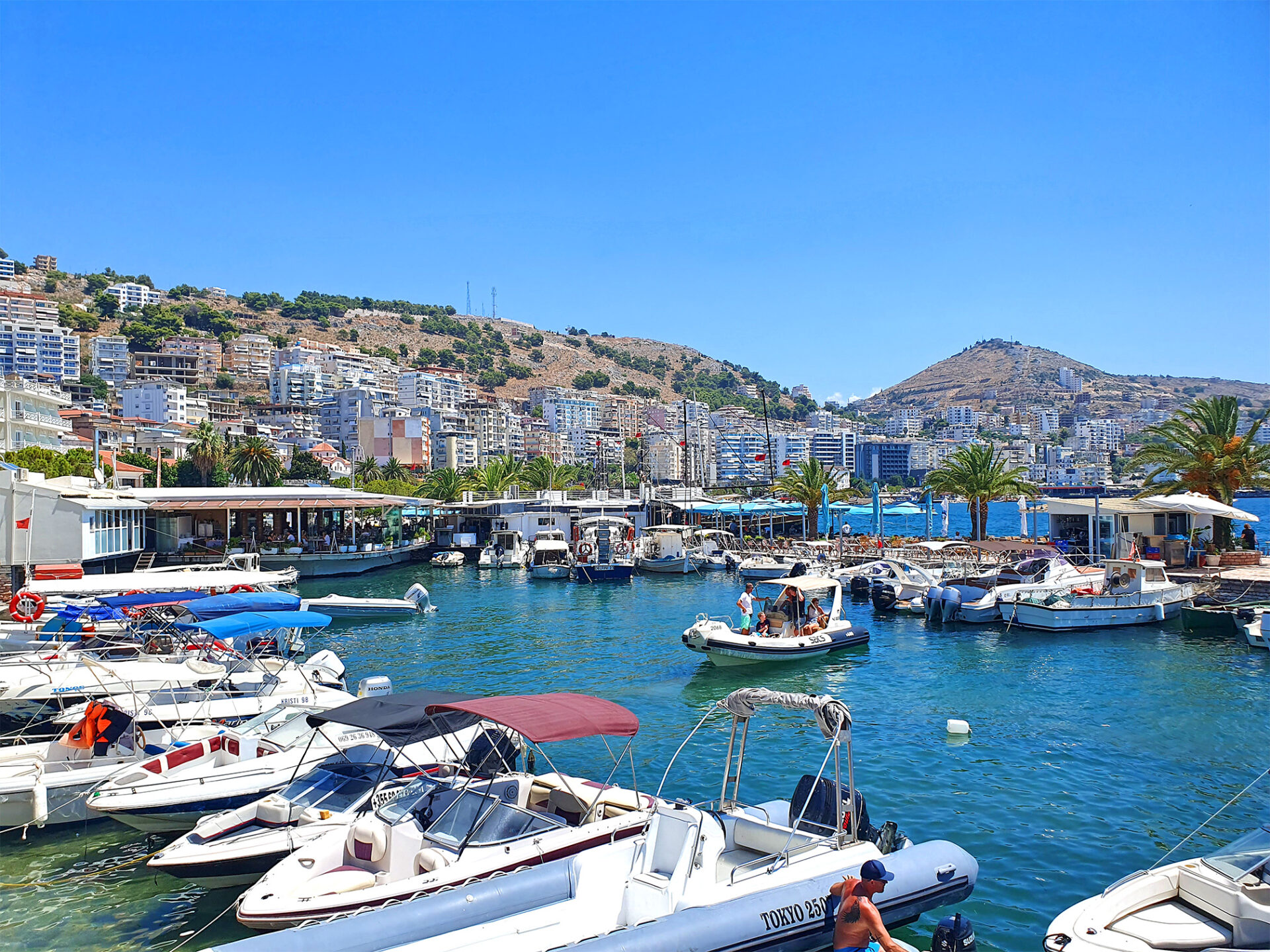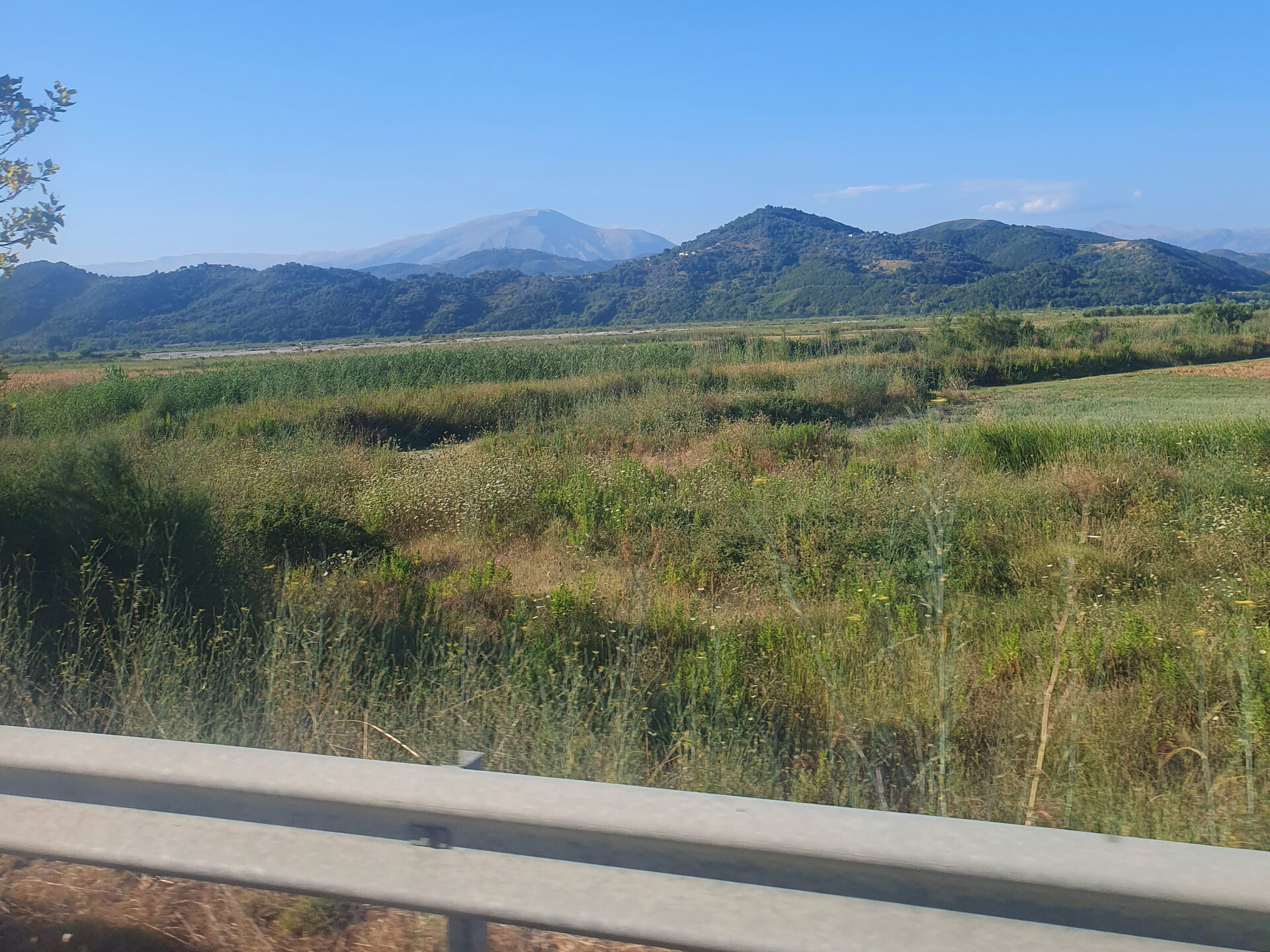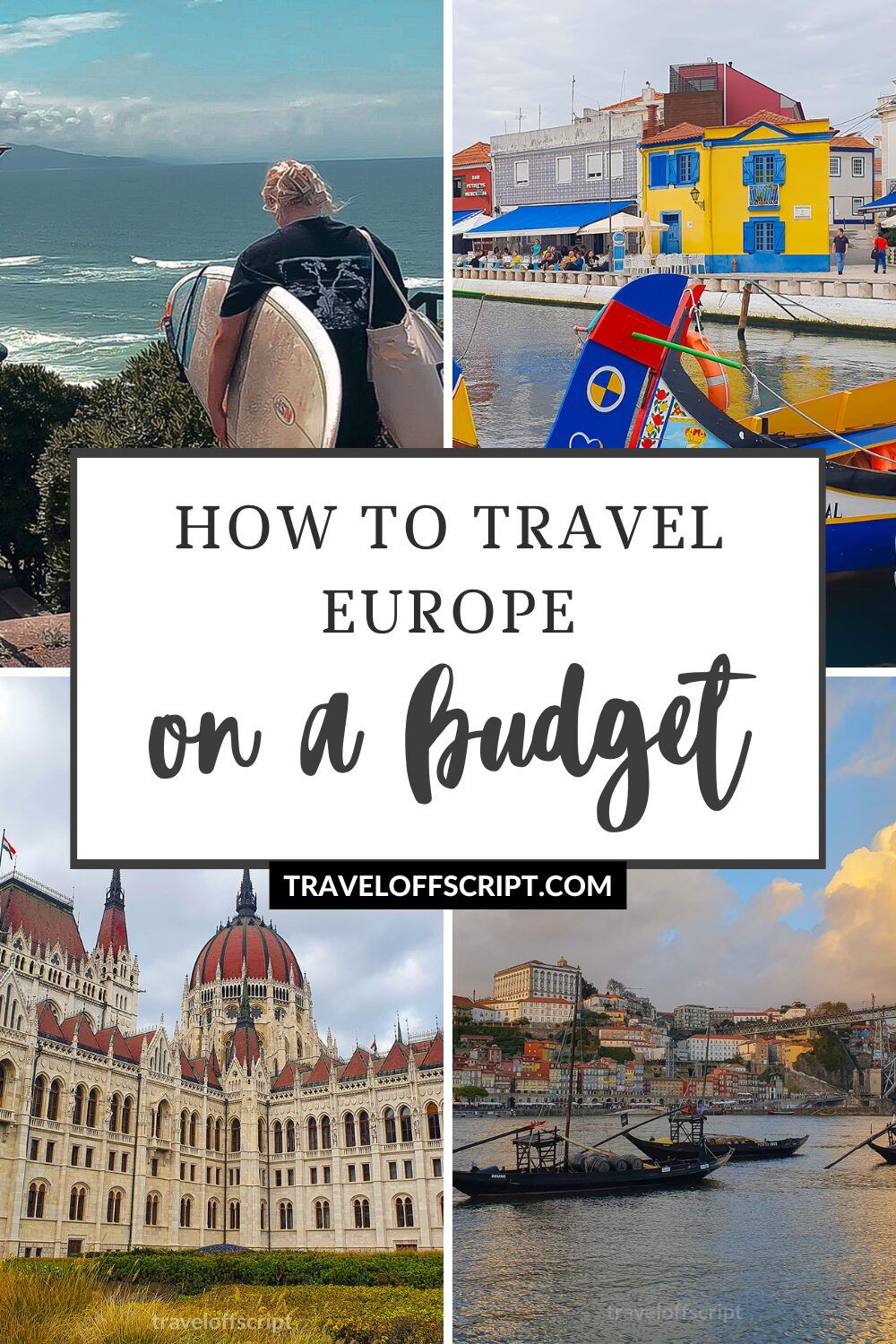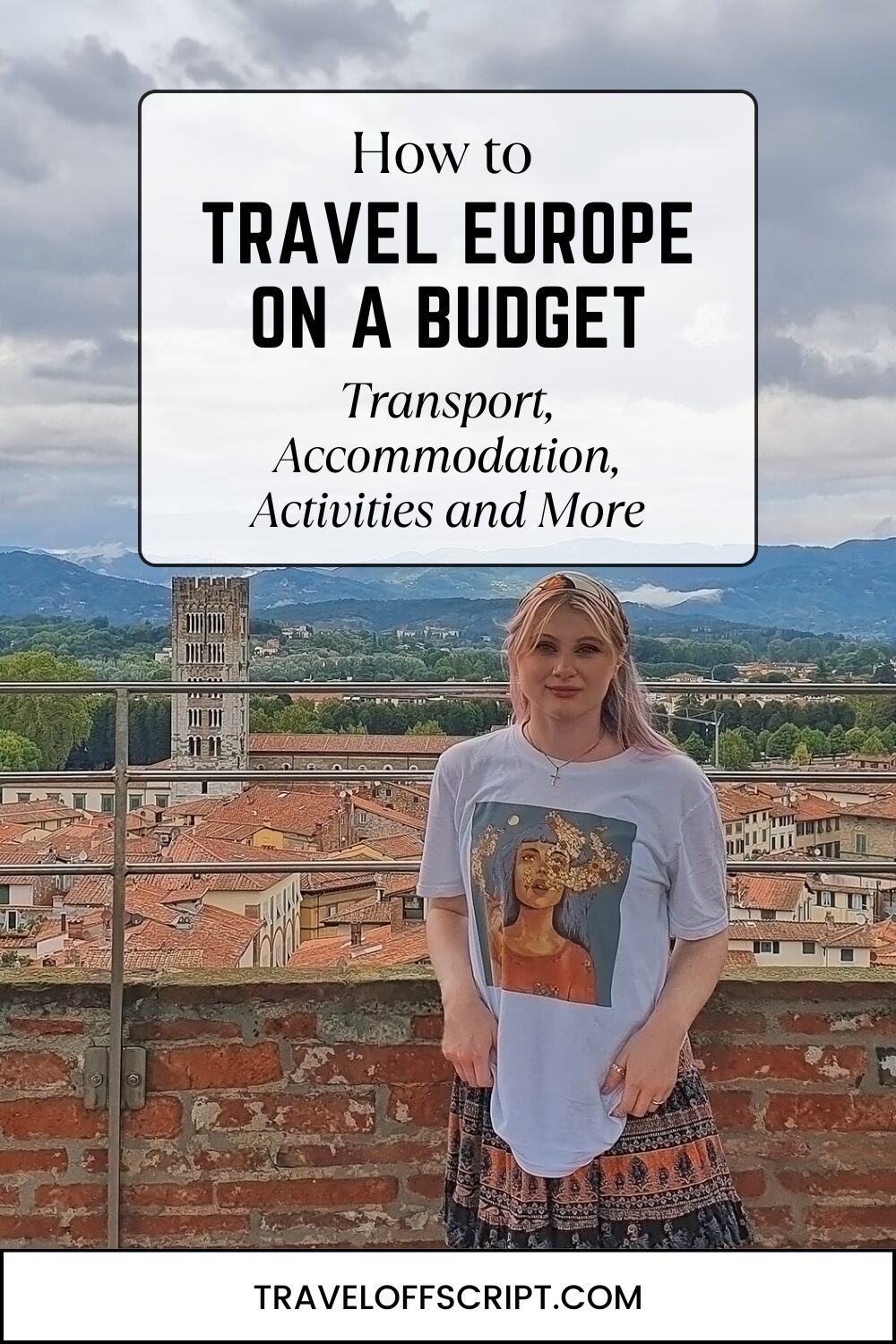Backpacker's Guide to the Cheapest Way to See Europe
Bell | 22 August 24
Seeing Europe doesn’t have to break the bank. From travelling by bus to staying in hostels or working for accommodation, here is how you can see Europe on a budget.
I have travelled to 20 countries in Europe so far, often on a strict budget. My first Europe trip was at just 17 years old, where I spent a month Interrailing with my sister.
Europe is one of my all-time favourite travel destinations. Not only is it my home continent, but there is a huge variety in places you can visit. From megacities to pristine beaches to stunning mountain scapes, Europe has it all.
If you want to travel Europe but are on a budget, this is the guide for you. I will share the cheapest options for transportation, accommodation and activities, as well as any tips and tricks from my experience.
Table of Contents
ToggleHow to Travel Europe for Cheap
Affordable Transport Options
Transport can quickly add up, especially if you are trying to see quite a few countries in Europe. That being said, Europe has a very developed public transport system, even between countries, meaning you can do it on a budget.
Travel by bus
Usually, the cheapest way to get from one city to the next is by bus. I have done this countless times in Europe and most bus rides are extremely affordable. I have also always felt quite safe, though I would say to keep your valuables closeby and be a bit mindful of who is next to you on longer bus rides.
The two companies I always check when I am planning to travel to another city or country are:
Flixbus – I’ve yet to find a journey that Flixbus doesn’t cover. They do have a reputation for being late, but this is something that you will find with most bus companies and should allow for in your travel plans. I have mostly had good experiences with them, though would avoid night buses if possible. I have always felt pretty safe with Flixbus, but have experienced issues like overbookings and rude drivers. Overall, still the bus company I keep referring back to for my travels.
BlaBlaCar– They are often only known for their carpool services, though they are also one of the top bus companies in Europe now. I have found them pretty reliable and sometimes even more affordable than Flixbus. They do have a pretty good customer support team, especially when it comes to refunds for delays.
Other carriers include Arriva in Croatia, Megabus/National Express in the UK, and Itabus in Italy. You can find them using Busbud. It is hence worth checking the country you want to travel to for their local bus system as they are sometimes cheaper or the times are better.
That being said, Flixbus is always a great option and the one I take the most frequently.
Travel by train
Europe is exceptionally well connected by train, with many express trains between the major cities. Some of them can be on the pricier side, so this is how you can find cheap train tickets:
Trainline – this is the best way to find and book cheap train tickets anywhere in Europe. It will show you the routes available as well as how much they cost. Often shorter routes or local trains are cheaper and the express trains more expensive, but it is possible to find deals on them too.
Interrail – This is a pass for a number of days in a month (or even several months) where you can travel on any train in Europe. It’s a great option if you are going quite large distances and want to get on high-speed trains, but I would always do a cost analysis for your specific trip. Sometimes it is cheaper to just book each train separately or use buses instead. It is usually worth it if you are trying to see as many cities as possible in 2-3 weeks.
Make sure to book well in advance, especially during the summer months as many trains get booked out. In addition, for the most touristy routes in Italy and France for example, it is worth buying a seat reservation to ensure you won’t have to stand the entire way for longer journeys.
Carpool
Car sharing is another affordable way to get from one place to the next and can be more comfortable than a bus. I have generally had good experiences. Your options for finding car shares are:
BlaBlaCar – This is probably the easiest and safest way to find a carpool. BlaBlaCar has reviews and a verification system for drivers, which provides you with some piece of mind about whose car you’re getting into. Booking is easy and you are able to make arrangements with the drivers directly.
Facebook Groups – Another way to find carpools is through Facebook Groups. There are some for specific countries or activities (surfing) which you can join and find rides on. This may require more work as you can’t as easily search for your exact route. Some of the best I’ve seen are Mitsurfbörse (German Surf Rideshare Group) and Europe Rideshares for Backpackers.
Flights
Unless I am going longer distances, flights are usually my least common way of transport in Europe. That being said, there are quite a few affordable airlines that service this area. The main ones are:
- Ryanair
- EasyJet
- Wizz Air
I would recommend checking Skyscanner or Kiwi to find the cheapest flights and then booking through them or the airlines directly. Some routes also have local airlines that may be even cheaper which will show up when searching through these platforms.
The most expensive part of these budget flights is usually the additional costs. That includes luggage. Sometimes, adding more than a small under-seat bag costs more than the flight itself. So, I would highly recommend travelling with hand luggage only.
If you do add luggage, most airlines will offer you several Economy options right at the start. The more expensive options tend to include seats and luggage. However, it is often cheaper to select the cheapest option at the start and then add on luggage yourself later on in the booking process! This 100% works for e.g. Ryanair.
Last Minute Deals
When it comes to flights, it is usually cheapest to book as early as possible or very last minute. For budget airlines, the more seats are sold the more expensive they get. However, if there are still open seats a few days prior, it is often possible to grab some really cheap deals.
Affordable Accommodation in Europe
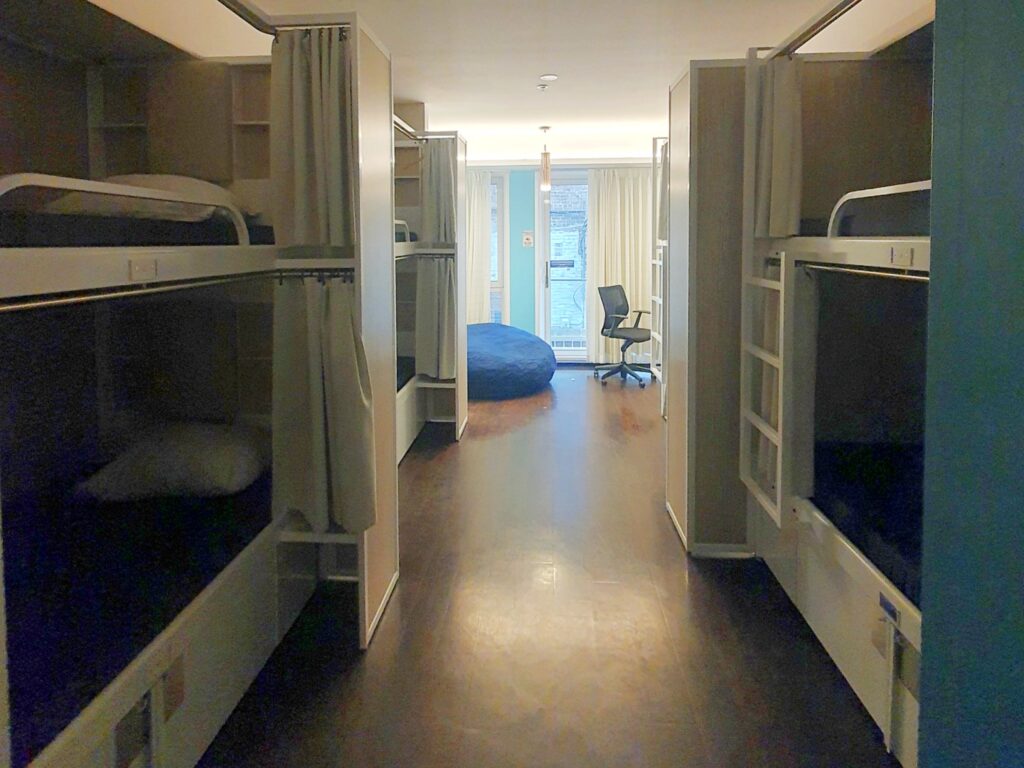
Europe has certainly gotten more expensive the past years as the concept of “European Summer” has gained popularity. That being said, it is still possible to find affordable accommodation in most European cities, even in the summer months. Exceptions I have found to this are Nice in France, Florence & Rome in Italy and London in the UK.
Hostels
When it comes to affordable accommodation, hostels are still always my first port of call. They are usually the cheapest option and as a solo traveller, you meet lots of other people and they often even organise group trips and activities.
When booking hostels, I usually check reviews across as many platforms as possible and book via Hostelworld or Booking. Often they are the cheapest though sometimes hostels give a discount for booking directly through them.
In some cities, Airbnb can be the same price as a hostel dorm. It is either due to the city being very affordable or it is so popular and busy that hostels have raised their prices.
I would always carefully check the reviews as well as location of the AirBnB to make sure you have a safe stay. I’ve had some really lovely experiences on AirBnB with local hosts but also had a few issues. Airbnb customer support is not my favourite and they sometimes keep problematic hosts on the platform, which is just worth keeping in mind.
If you enjoy a bit more privacy or need a social break from hostels, AirBnB is a great affordable option.
Budget Hotels
If hostels aren’t your thing or you need some time to yourself, most cities do have some budget hotels. I recommend checking Booking.com and filtering the price per night to fit your budget.
This is especially true for more affordable destinations such as Albania. Saranda for example has some amazing hotels at very low prices.
Couchsurfing
The absolute cheapest option for accommodation in Europe is Couchsurfing.com. Apart from the small fee that you pay to use the platform, stays are free.
The way Couchsurfing works is locals list their places as available and you can contact them to ask to stay. Accommodation can range from a couch (as the name suggests) to even your own private room and bathroom. Some hosts will even show you around their city or cook with you.
If you are a solo, female traveller, I would recommend looking for female or couple hosts instead of male hosts. I have many female friends who had great experiences no matter the host’s gender, but I have also heard of some who got into sticky situations with male Couchsurfing hosts. It is very rare, but some think that you owe them in exchange for staying for free.
In general, I think Couchsurfing is a great idea. Often, people offering stays are other travellers and it’s the perfect way to see a new city from a local’s perspective. I personally have not done it, but I have met quite a few travellers who swear by it.
Work for Accommodation
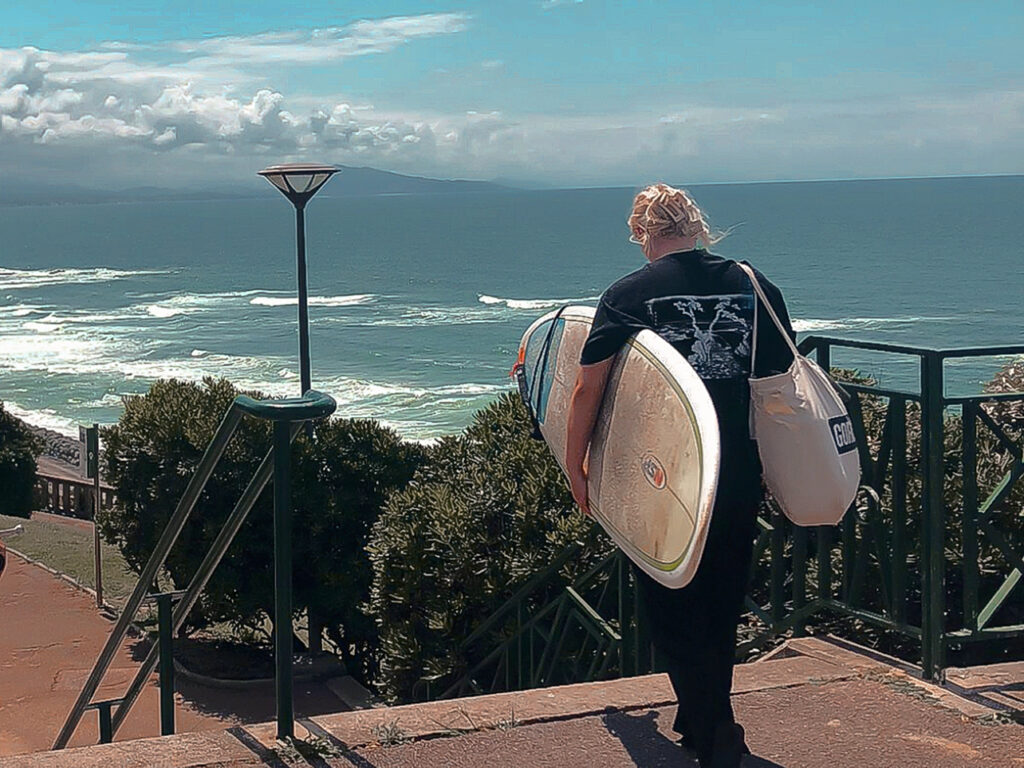
One of my favourite ways to see Europe for cheap and stay longer in some of my bucket list places is working for accommodation. This means you do a few hours of work each day in exchange for free accommodation and sometimes food and activities too. Work can range from reception to housekeeping to social media. Placements are usually a month or more.
I have volunteered in three different countries so far and loved my experience every time. The work can be hard but you usually have other volunteers that you can connect with, so it is great for making friends when travelling alone.
There are three ways to find these work for accommodation placements:
Worldpackers/Workaway: These are the main two work for accommodation sites. Both have lots of placements and hosts get reviews from previous volunteers making it a really safe way to find a work placement. It is said that Worldpackers has more international placements and Workaway more in Europe, but it really depends on what you are looking for. I recommend looking at both before you choose a membership. I personally have the Worldpackers one.
Give Housesitting a go
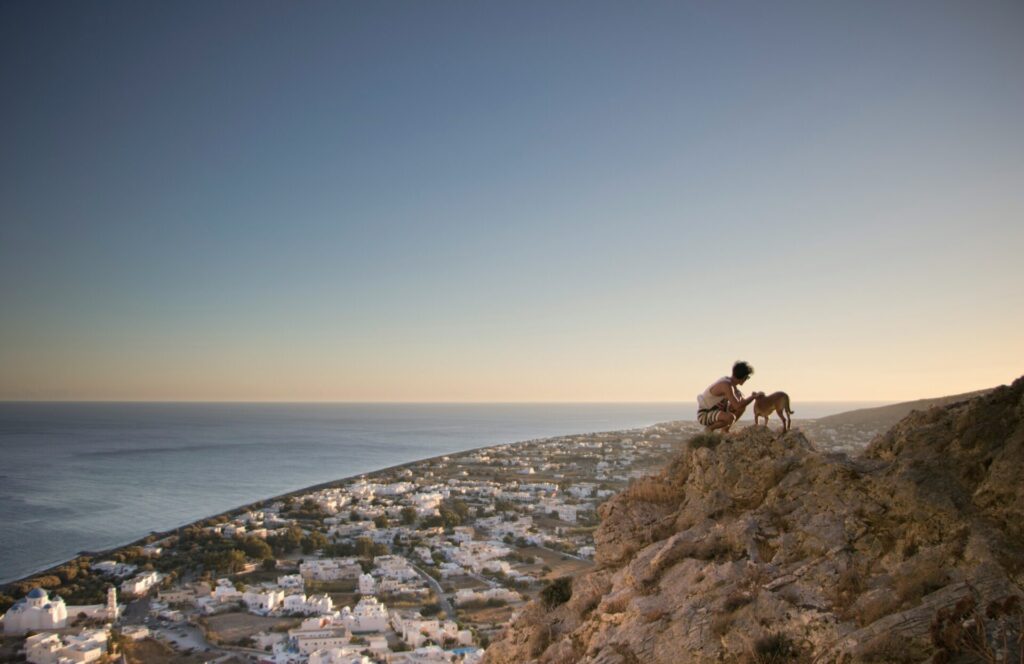
I only recently started housesitting and I think it’s another great way to travel for cheap. Housesitting means you look after someone’s house, or more often pets, while they are away. In exchange, you get free accommodation. Placements can range from a few days to months.
The main places to find housesitting placements are:
Housesitting Sites – The main ones are Trusted Housesitters for worldwide sits and House Sitting UK for the UK (I found it not as oversaturated as Trusted Housesitters). These are great as hosts can be reviewed and there is some security in place in case something goes wrong. For the best sits, I would clarify beforehand how many hours a day you can go out and explore and what other tasks are expected of you.
Facebook Groups – There are plenty of Housesitting Facebook Groups, such as “House Sitting Europe” and “House and Pet Sitting (Worldwide)”, however, it can be quite daunting to find a placement there. Posts are often oversaturated with dozens of replies. That being said, it is certainly possible to find a good placement, especially if you look at more specific sites for your desired country. I would just make sure to vet your host as much as possible before going to some remote location.
When is the cheapest time to go to Europe?
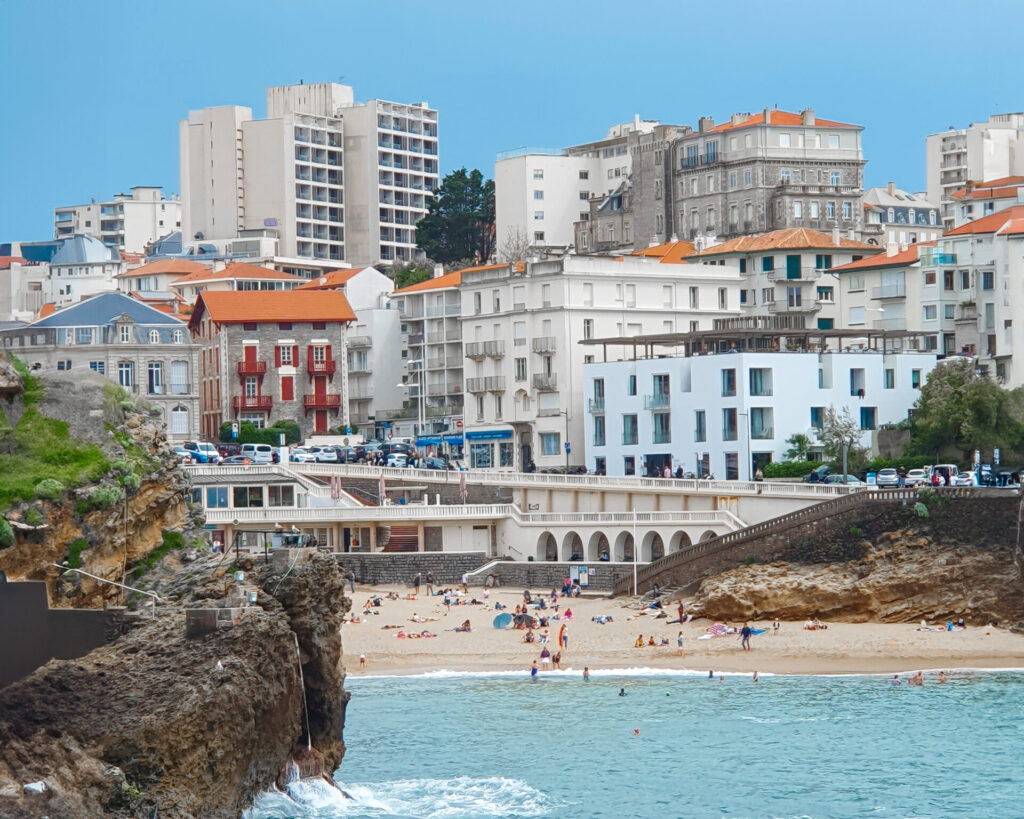
Europe is the cheapest outside of school holidays and the main summer months. Prices are most expensive in July and August, and are still a little higher in June and September.
From the end of September to mid-November as well as March to May tend to be the cheapest months for accommodation, flights, activities and more. I also find these months make for a much more relaxed visit as there aren’t masses of tourists yet and it isn’t unbearably hot like in the summer months.
The Shoulder Season
Those months are often called the Shoulder Season. It is the best of peak and off-peak, so it is still warm and sunny, but there aren’t as many people and locals are more open towards tourists.
What are the most budget-friendly destinations in Europe?

Europe has quite a few budget-friendly countries and cities, such as most of Albania, Croatia, and Eastern Europe in general, but even some of the more popular countries such as Spain or Italy can be done on a budget.
Some of my favourite budget-friendly destinations in Europe are:
Saranda, Albania
Albania is the hottest new destination in Europe and one of my favourites. It is still super affordable and offers pristine beaches, stunning nature and some beautiful historic cities.
Budapest, Hungary
Budapest has my heart. I keep returning here time and time again. There is so much to do, the locals are kind and it is super budget-friendly!
Porto, Portugal
Porto is severely underrated as a budget-friendly destination in my opinion. It is a beautiful city with so much history and culture. Most activities such as Fados or even Wine tours can be done within budget and you can even surf for pretty cheap.
Prague, Czechia
Prague is stunning in any season and there are a lot of free or cheap things to do here. Food is also still pretty affordable and delicious.
Best free or cheap activities in Europe

Activities don’t have to be expensive. There are obviously some bucket list ones that you may want to save up for, but you can also have a great time for very little money.
Some of my favourite free or cheap activities in any new place are:
Free Walking Tours: These tours are based on a tipping system where you pay what you can at the end. They are always led by locals and are nowadays available in most cities. My favourite way to learn more about a city’s history, culture and also the best local finds.
Free Museums: Many incredible Museums in some of the best cities in Europe are completely free. I have summarised some of my favourites in London in this blog post, but there is also the National Museum in Copenhagen, the Musée des Beaux-Arts in Nice, the Museo del Prado in Madrid and many more.
Budget Activities: Every city also has a bunch of activities for relatively cheap. If you hop on Viator, you can select your price range and see exactly what activity is within your budget in each city.
Each city will also have a very unique set of affordable things to do, whether that is local markets, viewpoints, hiking, festivals and more. If you are staying in a hostel, they also tend to offer discounted tours of some of the top sights in each city, which is a great way to save some money.
General Tips for travelling Europe on a budget
Travel Cards
A good travel card is your best friend when travelling to a destination with a different currency. Most of Europe (but not all) has the Euro nowadays.
I personally use Revolut and have had no issues so far. Revolut allows you to exchange money at the current rate at no charge. You can also take out cash at any ATM, without a fee (if the ATM doesn’t charge – always try to go to Banks directly as they are the cheapest or even free).
I prefer to exchange my money on the App before I pay, but it also does it automatically for you if you choose not to. That’s also a big thing to watch out for when paying abroad – sometimes card machines offer you to pay in your own currency. ALWAYS decline and choose the local currency.
Pack light
I already touched on this topic when we talked about flights, however, I would highly recommend travelling with hand luggage only if you are travelling Europe. Not only does it make travel cheaper and easier, but a lot of European cities have many, many stairs. The lighter you pack, the easier the journey will be.
Student Discounts
If you have a student card, you are at a massive advantage in Europe. Most countries have student discounts on museums and activities, even for international students.
Cook or eat local
Eating out can add a lot to your daily budget. If you are staying in a hostel or Airbnb, try to cook for yourself. You can also ask reception or your host for local eateries which will often be cheaper than the touristy places.
Hi, I'm Bell

My blog is here to show you that there isn’t one correct way to travel the world. Together, we can figure out what that means for you. Learn more about me here!
Grab my Ultimate FREE Packing Guide
Travel Off Script contains affiliate links to support the running of the blog. If you make a purchase through these links, I will earn a commission at no extra cost to you. Thank you.

